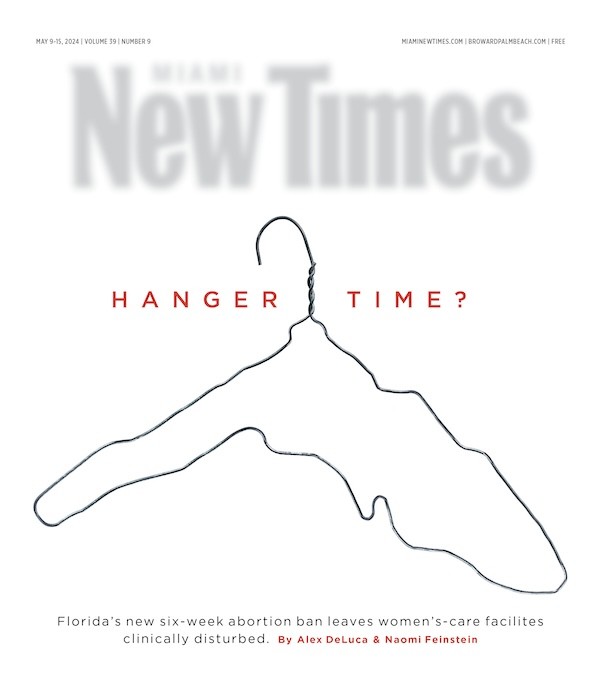What's the most important invention of the 20th Century? Is it the telephone? The assembly line? The airplane?
Nope -- it's the birth control pill. That's according to author and journalist Jonathan Eig, whose book, The Birth of The Pill, traces the pill's origins and the risk-taking innovators who pushed through societal barriers to bring it to millions of women worldwide.
Of course, he didn't come to the decision lightly. When he first heard a rabbi make the case for the pill as last century's biggest breakthrough, he thought, "That's nuts." So he decided to investigate, even though it made him a bit of an oddball amongst his peers.
See also: John Waters Talks Carsick, Miami Book Fair International, and His Singing Anus
"I mentioned to my poker buddies that I was writing a book about the invention of the birth control pill, and they looked at me like I was drunk or something," he laughs. "And I'm OK with it, but I think it's sad that people think birth control is only a women's issue. It's not. It's certainly played a pretty big role in my life, and I think it's important that men learn to talk about it."
It's easy to take the pill for granted, perhaps because it's often used in private, or because it's undervalued because it's manufactured for women. "The Pill is so ubiquitous now, and so many women have used it," Eig points out. "If you meet a family with four children, you're taken aback, like 'wow, you have four kids, that's nuts.'"
So it's difficult to imagine being a woman at the turn of the last century, when birth control of any kind was outlawed by many states, and considered a sin by the Catholic church. As Eig's book points out, women had little control over their own fertility. If you were married, to refuse sex was to neglect your duties as a wife, even if you were struggling to provide for your existing children or if your doctor told you having another child might kill you. If you were unmarried, you could expect an extra helping of scorn with your accidental pregnancy.
"If you think about the world at a time when women could not control their fertility, when they had to get permission from men to use birth control, it's almost impossible to imagine it," Eig says. "It changed the world in so many big ways. It put women in the workforce; it allowed them to go to college; it improved their health; it spread more happiness in so many ways."
Eig wondered why he knew the names of the inventors of the telephone and the airplane, but had never learned the story of the invention of the pill. So he made it his mission to find out. What he discovered was the story of a pack of rebels who worked with near-obsessive determination, often breaking the law and using questionably ethical tactics, to create a pill that would be approved by the FDA.
Margaret Sanger was the force behind the idea; the founder of Planned Parenthood believed women would always be second-class citizens until having children was their choice, rather than their obligation. She recruited scientist Dr. Gregory Goodwin Pincus, a scientist sympathetic to women's issues but mainly concerned with creating a legacy for himself as a great inventor. Pincus brought Dr. John Rock, a Catholic gynecologist eager to modernize the church's stance on birth control, to the project. Few private companies, let alone government entities, would agree to fund their controversial research; luckily, Katharine McCormick, who'd inherited the fortune of her husband, donated over $150,000 -- over $1.2 million in today's dollars -- to the cause.
But this isn't the story of a group of noble, forward-thinking role models devoted to a just cause. Pincus was known to exaggerate the success of his research in order to gain favor or funding. Sanger aligned herself with eugenicists for financial support. And the drug trials operated on shifty ethical grounds, giving women the drugs under false pretenses and before it had been fully proven to be safe.
"It's ironic that women are treated like lab rats as these people set out to invent something that's supposed to free women," Eig says. "But history is messy sometimes."
The Birth of The Pill tells a story that's as complex and personal as the issue of birth control itself. That, Eig says, is why he decided to write about it in the first place. Though he's a feminist -- "if you define feminism as believing in women's equality, how can you not be?" -- he says he didn't set out to write a feminist book. He just wanted to tell this crazy story.
"I wasn't trying to make a point about men's interest in birth control. I was just so blown away by the story that I came across that I had to write it."
Jonathan Eig reads Saturday, November 22, at 2:30 p.m. in room 2106. Visit miamibookfair.com.
Follow Ciara on Twitter: @ciaralavelle
Follow Cultist on Facebook and Twitter @CultistMiami.











